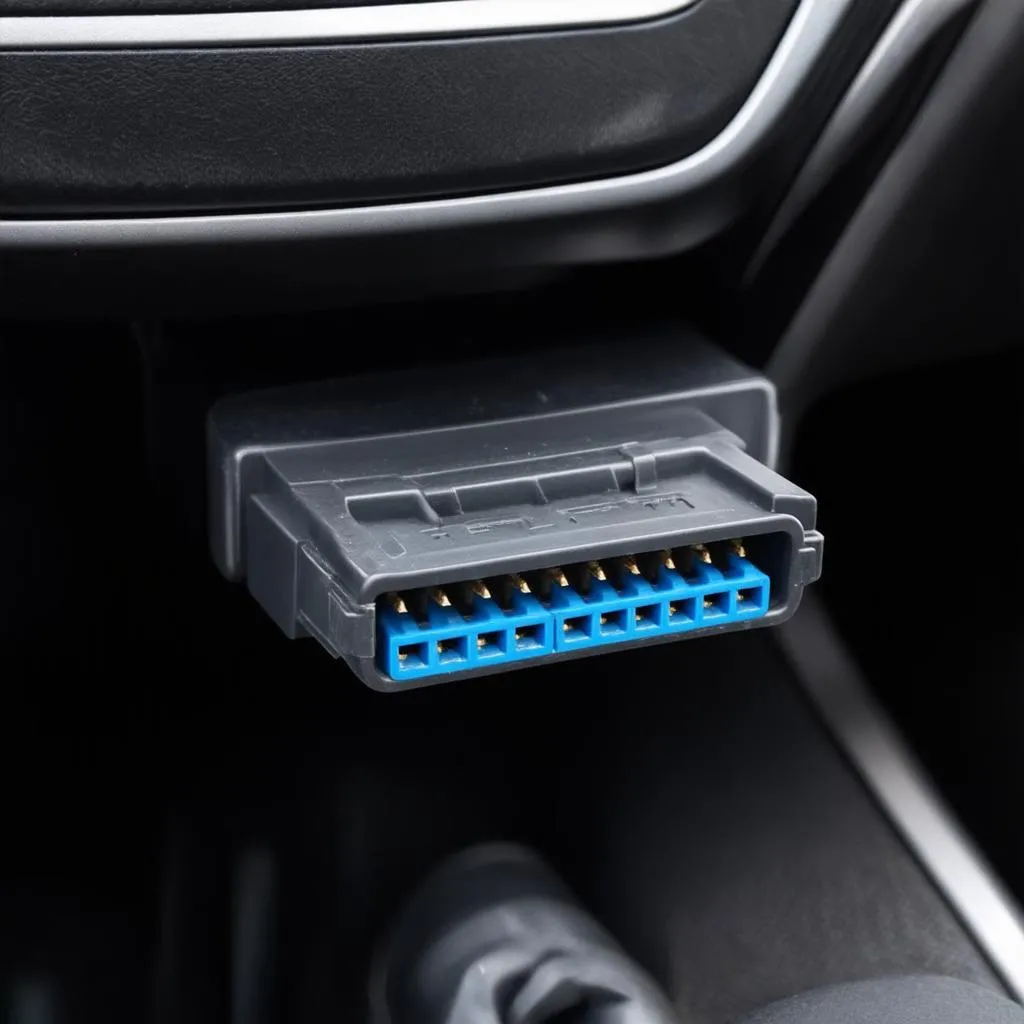Have you ever been in a situation where you left your car lights on, only to come back to a dead battery? It’s a frustrating experience, and one that can leave you stranded. But what if there was a way to turn off your car lights from the comfort of your own home? Many people believe that using an OBD connector might be the solution. This article will explore the truth behind this popular myth and guide you through the right approach to ensuring your car lights are turned off.
What is an OBD Connector?
The OBD connector, short for On-Board Diagnostics, is a standardized connector found in most modern vehicles. It allows mechanics and technicians to access and diagnose vehicle data, including fault codes, engine performance, and other key information. This information is stored in the vehicle’s computer, known as the Electronic Control Unit (ECU).
Can You Turn Off Your Lights Through Obd Connector?
The short answer is no, you cannot directly turn off your lights using the OBD connector. The OBD connector is designed to read and interpret vehicle data, not to control specific vehicle functions. While there are some OBD devices that can access certain vehicle functions, such as turning off the engine or resetting the check engine light, these are usually limited to specific models and require specialized software.
The Truth Behind the Myth
The myth of using an OBD connector to turn off your car lights likely stems from the misconception that the OBD connector has access to all vehicle systems. However, the OBD connector is only a communication channel between the vehicle’s ECU and external devices. The ECU itself controls various vehicle functions, including the lights, and it doesn’t have a direct connection to the OBD connector.
The Importance of Understanding Your Vehicle
It’s crucial to understand how your car’s electrical system works. Leaving your lights on can drain your battery, leading to a frustrating situation. While the OBD connector can be helpful for diagnostics, it’s not a magic solution to turn off your car lights.
So, What Can You Do?
To prevent your car battery from draining, it’s essential to develop good driving habits:
- Turn off your lights when you park. This may seem obvious, but it’s the most effective way to prevent your battery from draining.
- Use a timer to remind yourself to turn off your lights. If you tend to forget to turn off your lights, set a timer on your phone or use a reminder app.
- Check your lights regularly. Make sure all your lights are working properly. A burnt-out bulb can indicate a problem with your electrical system.
How to Properly Use OBD Connectors
While you can’t directly turn off your lights through the OBD connector, this versatile tool can be extremely helpful for vehicle maintenance and diagnostics. Here are some of the things you can do with an OBD connector:
- Read and clear diagnostic trouble codes (DTCs). When your car’s check engine light comes on, you can use an OBD scanner to read the DTCs and identify the problem.
- Monitor real-time vehicle data. Some OBD scanners can provide real-time data on your engine speed, fuel consumption, and other important parameters.
- Reset service reminders. Many newer vehicles have service reminders that can be reset using an OBD scanner.
- Find the location of your car’s OBD connector.
 obd-connector-car By using a scanner, you can diagnose issues with your car’s electrical system.
obd-connector-car By using a scanner, you can diagnose issues with your car’s electrical system.
The Bottom Line
While you can’t turn off your car lights through the OBD connector, it’s an essential tool for vehicle maintenance and diagnostics. Remember, proper driving habits, including turning off your lights when you park, are crucial to prevent your car battery from draining.
Frequently Asked Questions
- Can I use an OBD connector to access my car’s entertainment system? No, the OBD connector is not designed to interact with your car’s entertainment system.
- Are there any specific OBD devices that can control vehicle functions like lights? While some OBD devices may offer limited control over vehicle functions, they typically require specialized software and may not be compatible with all car models.
- What is the difference between a diagnostic tool and an OBD connector? An OBD connector is a physical connection point, while a diagnostic tool is a device used to access and interpret data through the OBD connector.
- Where can I learn more about OBD connectors and diagnostic tools? You can find more information on our website.
- Is it safe to use an OBD connector? Yes, but it’s important to use reputable tools and software.
Conclusion
The OBD connector is a valuable tool for diagnosing and maintaining your vehicle, but it’s not a magical solution to every car problem. By understanding the limitations of the OBD connector and practicing good driving habits, you can ensure your car lights are properly turned off and prevent your battery from draining.
If you have any further questions or require assistance with diagnostics tools, please don’t hesitate to contact us via WhatsApp: +84767531508. Our team of automotive experts is available 24/7 to help you.